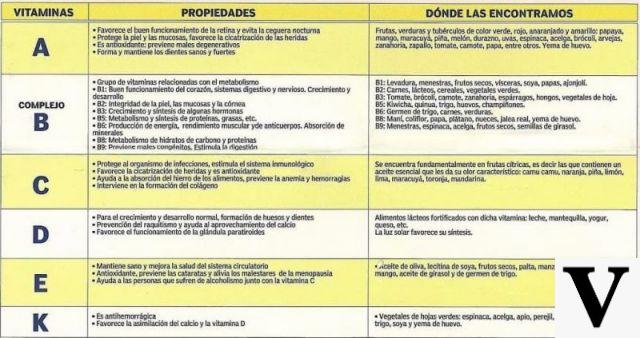 Many times we live a good part of life prisoners of daily self-deceptions. What am I referring to? By self-deception I mean those totally wrong beliefs that determine our behavior but which have no basis except in our ignorance and inadequate perception of the world around us. In terms of logic, a self-deception would be a logically incorrect reasoning but psychologically speaking, very persuasive. Daily self-deceptions are those thoughts that dictate how to act and how to evaluate, truths we deeply believe in but which are based in a reduced form of understanding reality and our role in it. Thus, there are a number of thoughts with which we deceive ourselves, some of the most common are: The self-deception of control: in everyday life, however we like it or not, we exert very little control over the environment around us. However, the anxiety of control sometimes gets to be truly immense: we want to control the life of our children, partner, friends ... then we deceive ourselves into believing that our power of control extends far beyond its real limits. The prejudice is rooted in the fact that trying to control, when we do not have the ability, generates enormous anxiety. The self-deception of justice: we tend to consider as unfair anything that does not coincide with our personal needs and desires. We consider ourselves the center of the universe and from there we decide what is right or wrong, adequate or not. Perhaps it would be easier to think in terms of: "This law is not right for me but it is right for other people", a little empathy does not hurt anyone. The self-deception of change: "Our happiness and well-being depend on the change of others". Unfortunately it is one of the most common self-deceptions in Western society, everything must change except ourselves, so we draw up a list of those responsible for our unhappiness and things that need to change: the government, our boss, the traffic, our partner, the professor. of school ... the list is endless. However, in most situations it is sufficient to change our perception of the facts, to try to understand situations from a different perspective; put yourself in the other person's shoes and try to understand his or her motivations. The self-deception of reason: "Only we possess the absolute truth". It is probably one of the most stupid forms of self-deception, first of all because there is no absolute truth and secondly because we cannot be sure that we are the custodians of it. So, standing up as holders of the truth only converts us into people closed to dialogue and restricts our path towards personal growth. Understanding that the truths we live today are relative and that they largely depend on the lens through which we look at them, even if it can make us a little insecure, still makes us more open, sensitive and flexible people. The self-deception of divine reward: represented by the tendency to hope that problems will resolve themselves in the future thanks to the intervention of the divine, luck or destiny. Suffice it to say that this self-deception represents the extreme point of the annulment of individual will and responsibility. One of the main problems that hides the self-deception is its dynamizing power of behavior coupled with its occult character. As if to say, it regulates the way we relate to ourselves and others at all times, determines our attitude and finally determines the success we are able to obtain in some activities but normally people are not aware of its existence. Self-deceptions have almost always remained there in the depths of conscience, so it seems "normal" to us to judge what is adequate and what is not starting from our point of reference, it seems "normal" to have absolute truth. and it seems “normal” to us to try to exert a certain degree of control over people and the environment around us. From this hidden position, self-deceptions are getting stronger or on the contrary, when we do not question them, since we do not have the psychological tools necessary to deal with them, they lead us to real difficulties without offering us a way out. It is therefore time for each of us to try to identify these little everyday deceptions and try to get rid of the preconceived ideas that support them. Life probably won't give a 180 degree turn but we will undoubtedly feel much better about ourselves.
Many times we live a good part of life prisoners of daily self-deceptions. What am I referring to? By self-deception I mean those totally wrong beliefs that determine our behavior but which have no basis except in our ignorance and inadequate perception of the world around us. In terms of logic, a self-deception would be a logically incorrect reasoning but psychologically speaking, very persuasive. Daily self-deceptions are those thoughts that dictate how to act and how to evaluate, truths we deeply believe in but which are based in a reduced form of understanding reality and our role in it. Thus, there are a number of thoughts with which we deceive ourselves, some of the most common are: The self-deception of control: in everyday life, however we like it or not, we exert very little control over the environment around us. However, the anxiety of control sometimes gets to be truly immense: we want to control the life of our children, partner, friends ... then we deceive ourselves into believing that our power of control extends far beyond its real limits. The prejudice is rooted in the fact that trying to control, when we do not have the ability, generates enormous anxiety. The self-deception of justice: we tend to consider as unfair anything that does not coincide with our personal needs and desires. We consider ourselves the center of the universe and from there we decide what is right or wrong, adequate or not. Perhaps it would be easier to think in terms of: "This law is not right for me but it is right for other people", a little empathy does not hurt anyone. The self-deception of change: "Our happiness and well-being depend on the change of others". Unfortunately it is one of the most common self-deceptions in Western society, everything must change except ourselves, so we draw up a list of those responsible for our unhappiness and things that need to change: the government, our boss, the traffic, our partner, the professor. of school ... the list is endless. However, in most situations it is sufficient to change our perception of the facts, to try to understand situations from a different perspective; put yourself in the other person's shoes and try to understand his or her motivations. The self-deception of reason: "Only we possess the absolute truth". It is probably one of the most stupid forms of self-deception, first of all because there is no absolute truth and secondly because we cannot be sure that we are the custodians of it. So, standing up as holders of the truth only converts us into people closed to dialogue and restricts our path towards personal growth. Understanding that the truths we live today are relative and that they largely depend on the lens through which we look at them, even if it can make us a little insecure, still makes us more open, sensitive and flexible people. The self-deception of divine reward: represented by the tendency to hope that problems will resolve themselves in the future thanks to the intervention of the divine, luck or destiny. Suffice it to say that this self-deception represents the extreme point of the annulment of individual will and responsibility. One of the main problems that hides the self-deception is its dynamizing power of behavior coupled with its occult character. As if to say, it regulates the way we relate to ourselves and others at all times, determines our attitude and finally determines the success we are able to obtain in some activities but normally people are not aware of its existence. Self-deceptions have almost always remained there in the depths of conscience, so it seems "normal" to us to judge what is adequate and what is not starting from our point of reference, it seems "normal" to have absolute truth. and it seems “normal” to us to try to exert a certain degree of control over people and the environment around us. From this hidden position, self-deceptions are getting stronger or on the contrary, when we do not question them, since we do not have the psychological tools necessary to deal with them, they lead us to real difficulties without offering us a way out. It is therefore time for each of us to try to identify these little everyday deceptions and try to get rid of the preconceived ideas that support them. Life probably won't give a 180 degree turn but we will undoubtedly feel much better about ourselves. Many times we live a good part of life prisoners of daily self-deceptions. What am I referring to? By self-deception I mean those totally wrong beliefs that determine our behavior but which have no basis except in our ignorance and inadequate perception of the world around us. In terms of logic, a self-deception would be a logically incorrect reasoning but psychologically speaking, very persuasive. Daily self-deceptions are those thoughts that dictate how to act and how to evaluate, truths we deeply believe in but which are based in a reduced form of understanding reality and our role in it. Thus, there are a number of thoughts with which we deceive ourselves, some of the most common are: The self-deception of control: in everyday life, however we like it or not, we exert very little control over the environment around us. However, the anxiety of control sometimes gets to be truly immense: we want to control the life of our children, partner, friends ... then we deceive ourselves into believing that our power of control extends far beyond its real limits. The prejudice is rooted in the fact that trying to control, when we do not have the ability, generates enormous anxiety. The self-deception of justice: we tend to consider as unfair anything that does not coincide with our personal needs and desires. We consider ourselves the center of the universe and from there we decide what is right or wrong, adequate or not. Perhaps it would be easier to think in terms of: "This law is not right for me but it is right for other people", a little empathy does not hurt anyone. The self-deception of change: "Our happiness and well-being depend on the change of others". Unfortunately it is one of the most common self-deceptions in Western society, everything must change except ourselves, so we draw up a list of those responsible for our unhappiness and things that need to change: the government, our boss, the traffic, our partner, the professor. of school ... the list is endless. However, in most situations it is sufficient to change our perception of the facts, to try to understand situations from a different perspective; put yourself in the other person's shoes and try to understand his or her motivations. The self-deception of reason: "Only we possess the absolute truth". It is probably one of the most stupid forms of self-deception, first of all because there is no absolute truth and secondly because we cannot be sure that we are the custodians of it. So, standing up as holders of the truth only converts us into people closed to dialogue and restricts our path towards personal growth. Understanding that the truths we live today are relative and that they largely depend on the lens through which we look at them, even if it can make us a little insecure, still makes us more open, sensitive and flexible people. The self-deception of divine reward: represented by the tendency to hope that problems will resolve themselves in the future thanks to the intervention of the divine, luck or destiny. Suffice it to say that this self-deception represents the extreme point of the annulment of individual will and responsibility. One of the main problems that hides the self-deception is its dynamizing power of behavior coupled with its occult character. As if to say, it regulates the way we relate to ourselves and others at all times, determines our attitude and finally determines the success we are able to obtain in some activities but normally people are not aware of its existence. Self-deceptions have almost always remained there in the depths of conscience, so it seems "normal" to us to judge what is adequate and what is not starting from our point of reference, it seems "normal" to have absolute truth. and it seems “normal” to us to try to exert a certain degree of control over people and the environment around us. From this hidden position, self-deceptions are getting stronger or on the contrary, when we do not question them, since we do not have the psychological tools necessary to deal with them, they lead us to real difficulties without offering us a way out. It is therefore time for each of us to try to identify these little everyday deceptions and try to get rid of the preconceived ideas that support them. Life probably won't give a 180 degree turn but we will undoubtedly feel much better about ourselves.
Many times we live a good part of life prisoners of daily self-deceptions. What am I referring to? By self-deception I mean those totally wrong beliefs that determine our behavior but which have no basis except in our ignorance and inadequate perception of the world around us. In terms of logic, a self-deception would be a logically incorrect reasoning but psychologically speaking, very persuasive. Daily self-deceptions are those thoughts that dictate how to act and how to evaluate, truths we deeply believe in but which are based in a reduced form of understanding reality and our role in it. Thus, there are a number of thoughts with which we deceive ourselves, some of the most common are: The self-deception of control: in everyday life, however we like it or not, we exert very little control over the environment around us. However, the anxiety of control sometimes gets to be truly immense: we want to control the life of our children, partner, friends ... then we deceive ourselves into believing that our power of control extends far beyond its real limits. The prejudice is rooted in the fact that trying to control, when we do not have the ability, generates enormous anxiety. The self-deception of justice: we tend to consider as unfair anything that does not coincide with our personal needs and desires. We consider ourselves the center of the universe and from there we decide what is right or wrong, adequate or not. Perhaps it would be easier to think in terms of: "This law is not right for me but it is right for other people", a little empathy does not hurt anyone. The self-deception of change: "Our happiness and well-being depend on the change of others". Unfortunately it is one of the most common self-deceptions in Western society, everything must change except ourselves, so we draw up a list of those responsible for our unhappiness and things that need to change: the government, our boss, the traffic, our partner, the professor. of school ... the list is endless. However, in most situations it is sufficient to change our perception of the facts, to try to understand situations from a different perspective; put yourself in the other person's shoes and try to understand his or her motivations. The self-deception of reason: "Only we possess the absolute truth". It is probably one of the most stupid forms of self-deception, first of all because there is no absolute truth and secondly because we cannot be sure that we are the custodians of it. So, standing up as holders of the truth only converts us into people closed to dialogue and restricts our path towards personal growth. Understanding that the truths we live today are relative and that they largely depend on the lens through which we look at them, even if it can make us a little insecure, still makes us more open, sensitive and flexible people. The self-deception of divine reward: represented by the tendency to hope that problems will resolve themselves in the future thanks to the intervention of the divine, luck or destiny. Suffice it to say that this self-deception represents the extreme point of the annulment of individual will and responsibility. One of the main problems that hides the self-deception is its dynamizing power of behavior coupled with its occult character. As if to say, it regulates the way we relate to ourselves and others at all times, determines our attitude and finally determines the success we are able to obtain in some activities but normally people are not aware of its existence. Self-deceptions have almost always remained there in the depths of conscience, so it seems "normal" to us to judge what is adequate and what is not starting from our point of reference, it seems "normal" to have absolute truth. and it seems “normal” to us to try to exert a certain degree of control over people and the environment around us. From this hidden position, self-deceptions are getting stronger or on the contrary, when we do not question them, since we do not have the psychological tools necessary to deal with them, they lead us to real difficulties without offering us a way out. It is therefore time for each of us to try to identify these little everyday deceptions and try to get rid of the preconceived ideas that support them. Life probably won't give a 180 degree turn but we will undoubtedly feel much better about ourselves.

























